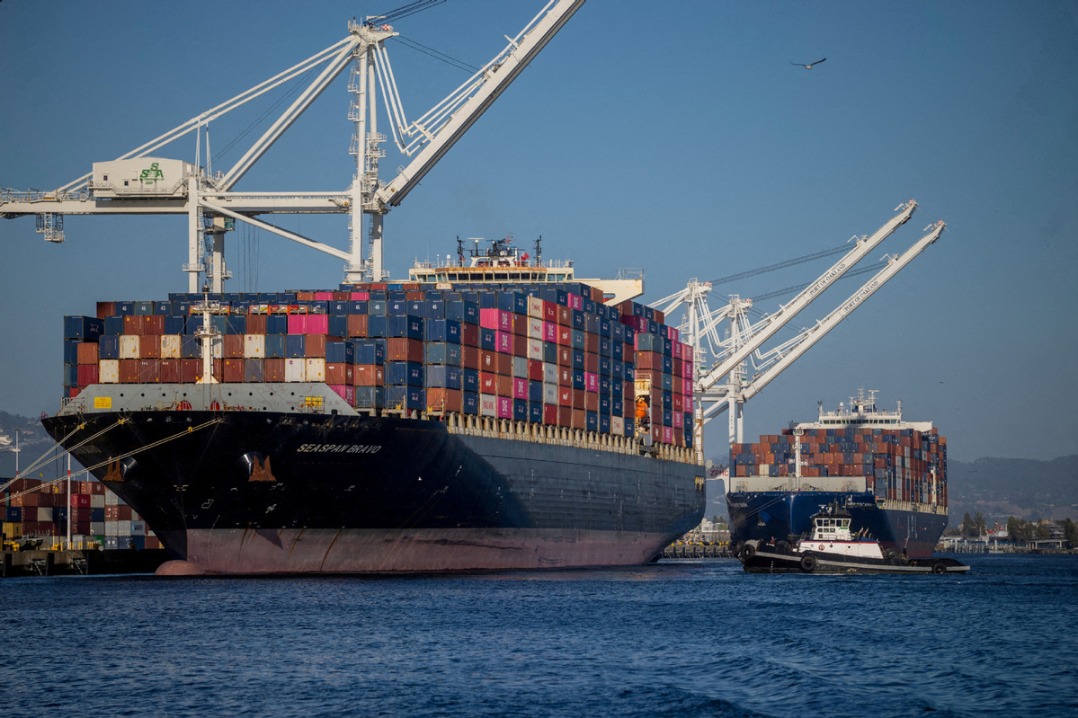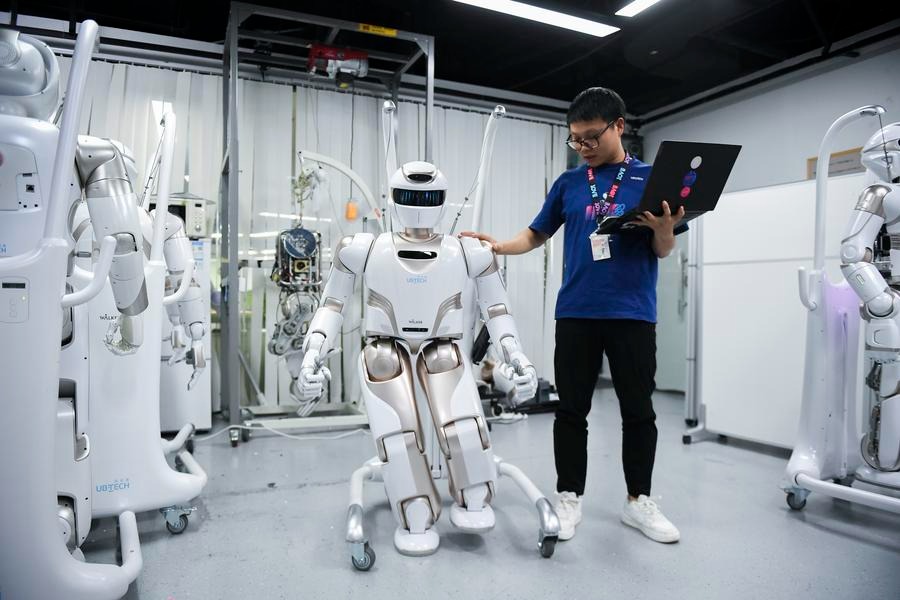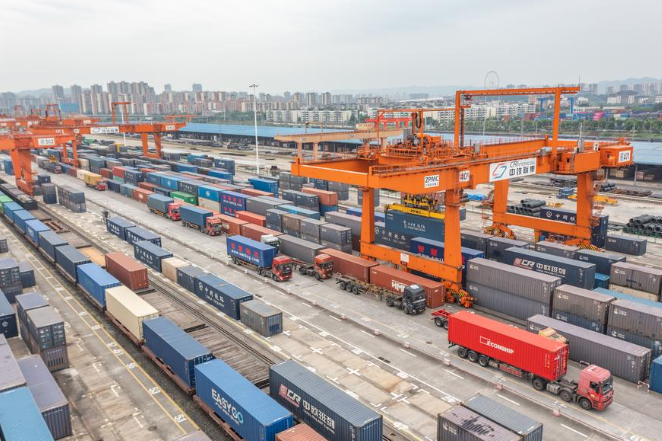Experts call for joint AI governance as gap widens

As artificial intelligence advances at breakneck speed, the digital divide between developed and developing nations continues to widen. Countries should step up cooperation in AI capacity building, uphold the United Nations as the central platform for dialogue, and work together to establish a governance framework grounded in equality, mutual benefit and shared development, experts said.
They made the remarks at the Mingde Strategic Dialogue 2025, hosted by Renmin University of China in Beijing on Friday, under the theme "Chinese Modernization: A New Driver of Globalization".
The rise of artificial intelligence, the information-driven economy, and the digital society has collectively ushered in a new wave of modernization, propelling industrial progress. Yet, this transformation has also spurred new tensions, particularly those related to productivity, that affect human well-being, regulatory systems and cultural norms, posing potential disruptions to the fabric of society, they said.
Sergey Bodrunov, president of the Free Economic Society of Russia and corresponding member of the Russian Academy of Sciences, said the rapid development of AI is reshaping global politics and economics. The world must strengthen preparedness in AI governance to address emerging challenges.
"At the global level, nations must unite to establish new guiding principles for the age of intelligence. The core principle should be benevolence — whether in the realm of the internet or AI. As history reminds us, when technological power is misused, it can easily turn into a weapon that threatens humanity itself," he said.
Tong Xiaoling, ambassador of the China Public Diplomacy Association, said that the development of AI has led to "digital hegemony" and an emerging "intelligence divide", creating profound challenges for global AI cooperation. Unilateralism, technological monopolies and fragmented governance frameworks have become major obstacles to building a fair and inclusive AI order.
"We should firmly support the UN in playing a central role in AI governance. At the same time, we must help developing countries enhance their voice to ensure that global AI development does not evolve into a club for wealthy nations," she said.
"As we advance intelligent development, it is essential to strike a balance between security and progress. The disruptive potential of AI offers unprecedented opportunities for human civilization, yet it also entails unpredictable risks. The international community should therefore uphold a 'people-centered, ethics-first' approach, promoting technological innovation while proactively tackling challenges such as data security, algorithmic bias, and technology misuse through adaptive governance and tiered regulatory frameworks," Tong said.
She said China supports the establishment of risk assessment and early warning mechanisms within the framework of the UN. At the same time, it firmly opposes the creation of technological barriers and the building of "small yard, high fence" under the guise of security.
Francesca Bria, adviser of European Commission President Ursula von der Leyen on the New European Bauhaus green policy and funding initiative, said that all countries should work to ensure that the development and governance of AI are democratic in nature and foster broad public participation.
Advancing cooperation
"Technology must serve humanity and our shared planet, not be trapped within the confines of isolated market interests. Even as the world risks fragmenting into separate technological spheres, we cannot stand by, and we must strive to advance cooperation and keep technology a bridge, not a barrier," she said.
Bria elaborated that China and Europe can work together in advancing new technologies and upholding multilateralism to foster mutual trust and shared prosperity.
"Cooperation should extend to fields such as AI, data governance, government transparency and resource allocation, ensuring alignment with environmental and other regulatory standards. Both sides should also embrace green and sustainable approaches to build more resilient AI infrastructure, while leveraging AI and related technologies to improve healthcare, social services and other essential public sectors," she said.
Romano Prodi, former prime minister of Italy and former president of the European Commission, said that China is making rapid strides in frontier fields such as AI, achieving remarkable progress that can help bridge global development gaps and foster shared prosperity.
"Future plans and current priorities should center on technological advancement, the strengthening of multilateral mechanisms, and the building of transnational cooperation to bring more nations together. Such efforts are essential to preventing deeper divides, not only between China and the West, but across the global community as a whole," he said.
Xu Bihong contributed to this story.
liujianqiao@chinadaily.com.cn
































